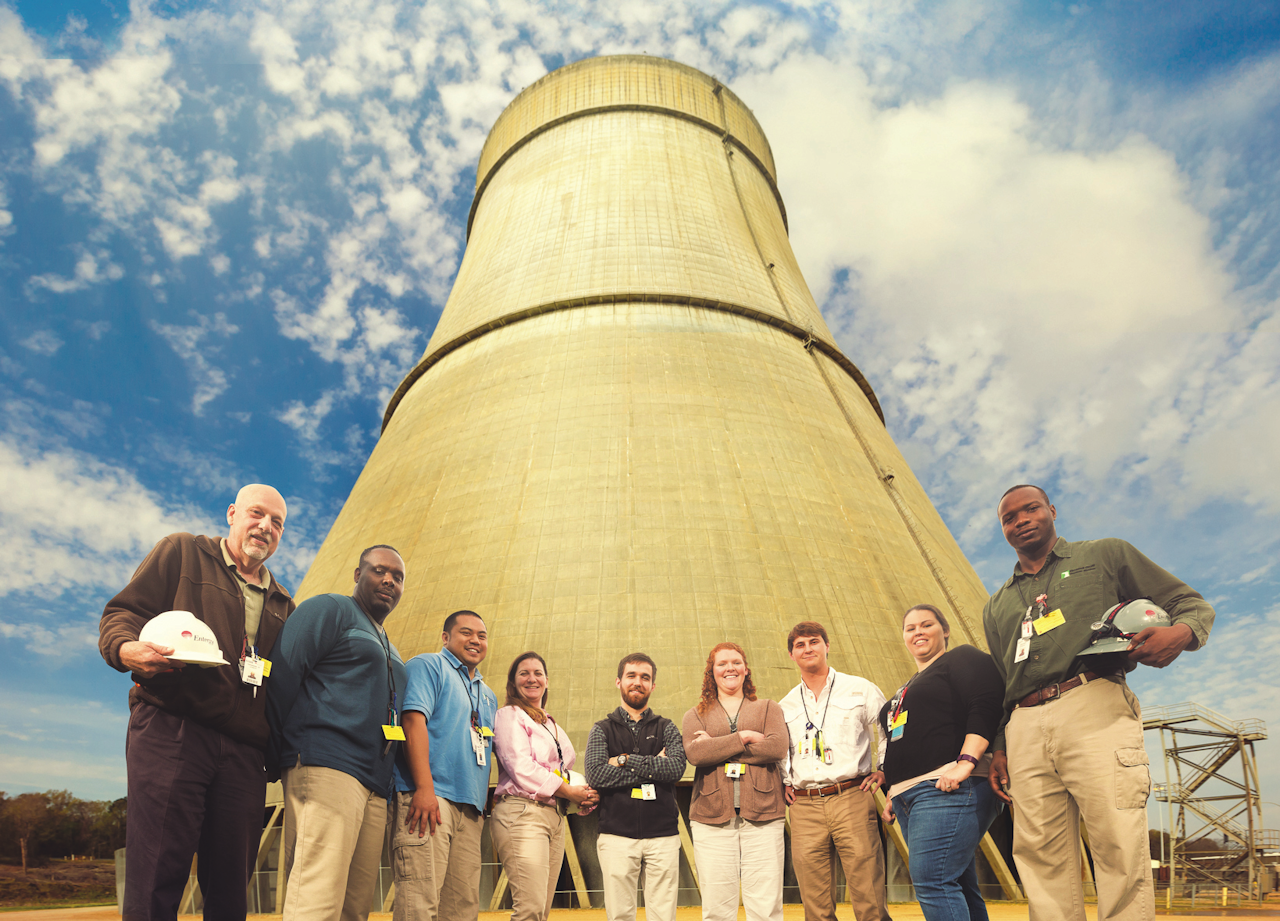
Americans used 17% more energy in the 1990s than they did in the 1980s. By contrast, our nation's energy production only increased by about 2% over that time period.
Energy consumption is projected to increase by 32% in the next two decades. To meet those needs, our nation would have to construct anywhere from 1,300 to 1,900 new power plants. And even if we could do that, we don't have the transmission in place to move the electricity.
At Entergy Nuclear, we have an advantage. We're a part of the only industry that has the capability to meet this large-scale need in an environmentally friendly way.
Most nuclear power plants produce much more energy than a typical fossil fuel, hydroelectric, solar or wind source. Nuclear power is the most eco-efficient energy source given its high power generation with minimal environmental impact.
Nuclear plant air emissions are almost nonexistent because nothing is burned in the nuclear electricity generating process. In fact, by substituting for the use of fossil fuels in electricity generation, U.S. nuclear power plants currently prevent hundreds of millions of tons in greenhouse gas emissions annually. In addition, water discharged from nuclear plants does not come into contact with radioactive materials and is safely discharged under administrative and in-plant procedures. Nuclear power also makes relatively small demands on land in terms of fuel extraction and plant site size.
